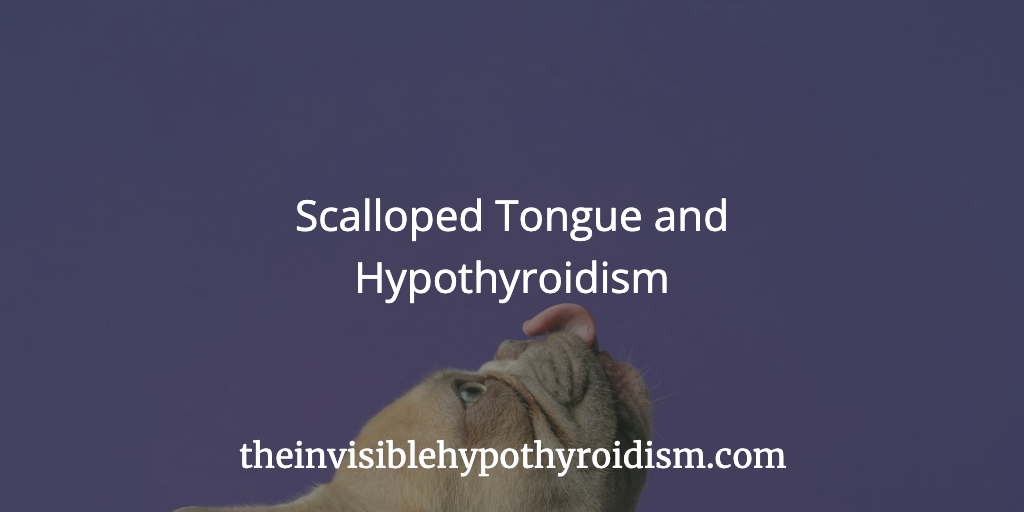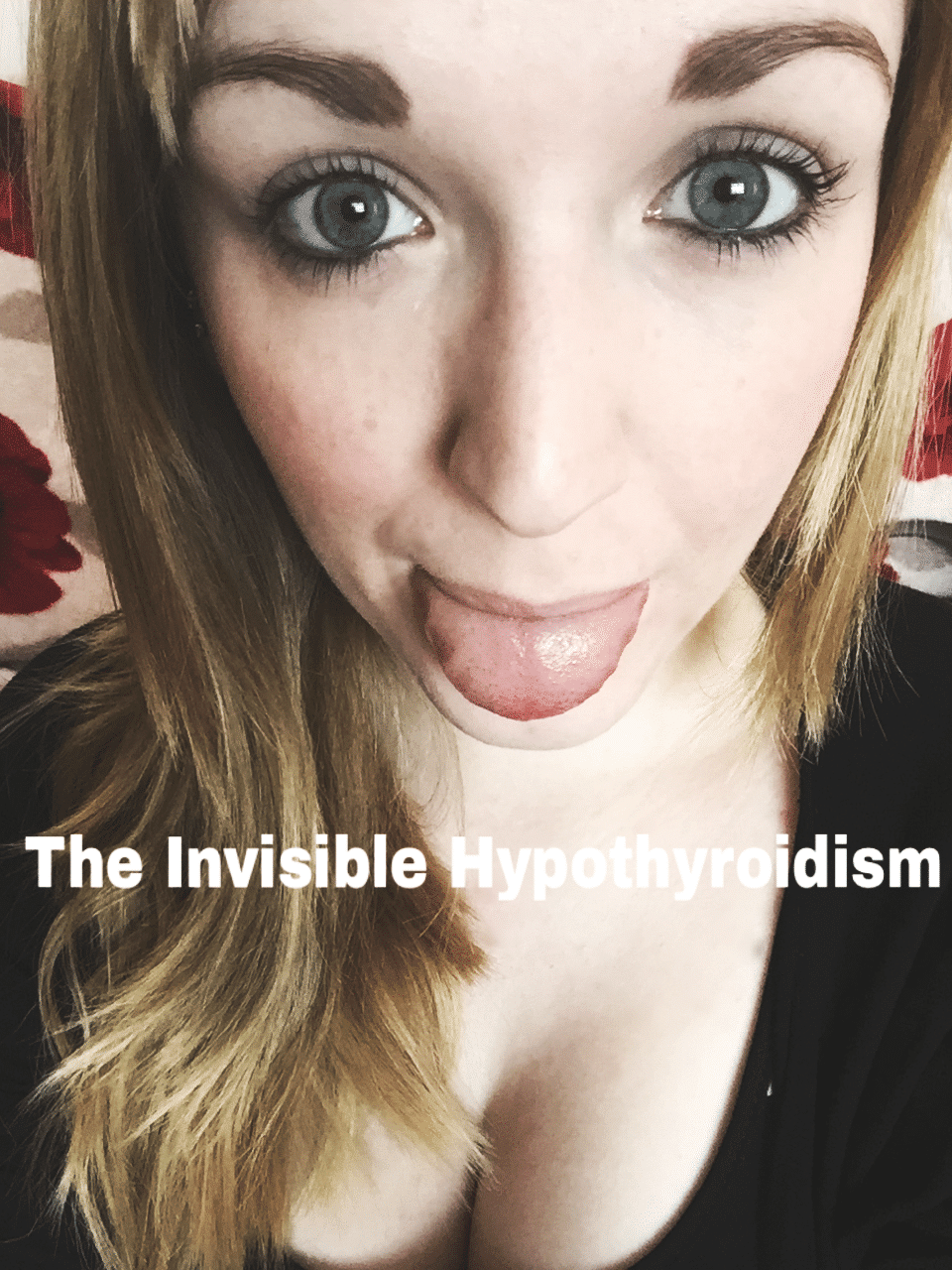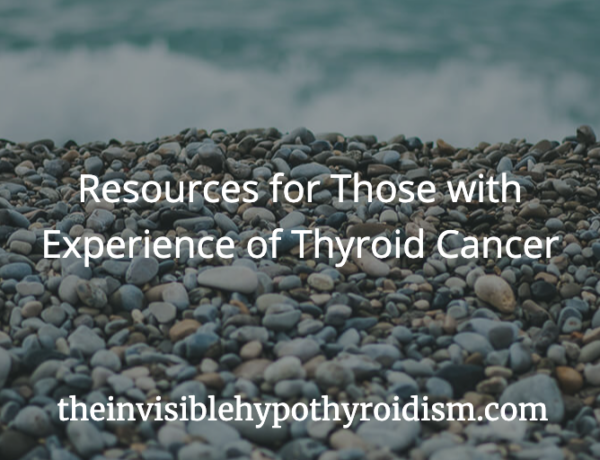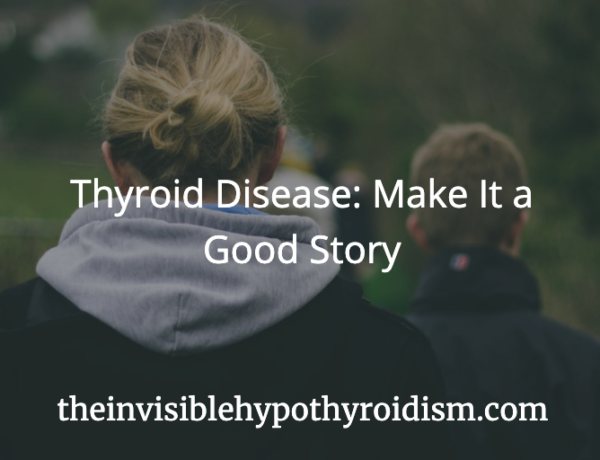Originally published on 1st June 2016 Last updated on 20th November 2023
Do you have a scalloped tongue? Do you also have hypothyroidism?
If you’ve answered yes to both, then you may not be aware of the connection between them.
A Common Link
It is actually very common to have a scalloped tongue with hypothyroidism, and having had it years before being diagnosed, too.
I myself have one, and have always thought it was a bit odd, as I didn’t notice anyone else with one, but the dentist told me that my tongue was scalloped due to grinding and clenching my teeth at night. Being a natural worrier who could well clench or grind her teeth at night, I put it down to that, too, until I came across an article about it.
Dr. Skinner mentioned in his book Diagnosis and Management of Hypothyroidism that an enlarged tongue can even be uncomfortable, cause slurring of the speech and voice change. He attributed it to the chronicity of the hypothyroidism in that patient.
So what are the possible causes?
Low Thyroid Hormone
An enlarged tongue due to low thyroid hormone levels, as Dr Skinner covers in his book, pushes up against the teeth over a long time which can cause it to become scalloped.
To treat this, we want to ensure our thyroid hormone levels are optimised (not just ‘in range’), and these look like a TSH below 2.5, Free T3 in the top quarter of the range and Free T4 midrange, for many. Read more about the references and sources for these number here, as well as how they can differ from person to person.
Low Iodine
Ensuring you have enough iodine in your diet may also help a scalloped or enlarged tongue, as it’s often low in thyroid patients.
Iodine is a building block of thyroid hormone. However, supplementing it is controversial. Speak to your doctor and only supplement if your body definitely needs it.
Low B12 Levels
Another common cause for a scalloped tongue, could be low or deficient B12 levels, which is quite common in hypothyroidism patients.
If you become deficient in either B12 or folate, the body may produce abnormally large red blood cells which don’t function normally and can lead to megaloblastic anaemia, which can affect the tongue’s shape and size.
Getting your levels tested and ensuring that they are optimal, and not just ‘in range’ could be crucial to not only solving a scalloped tongue, but also ongoing fatigue and mental health issues such as depression.
Poor Gut Health
Also worth knowing is that a white-coated tongue could be an indication of a yeast (candida) overgrowth. Candida is a fungus that lives in your mouth and intestines and its job is to help the digestion and absorption of nutrients. However, an overgrowth can occur, which is pretty common in Hashimoto’s patients especially and can lead to the breakdown of the intestine walls.
A white coated tongue that is also scalloped or enlarged may be improved with good gut health practises, alongside the other things mentioned in this article.
Read about how I addressed my own gut health here.
A UK test for Candida can be found here and a US test here.
Clenching Your teeth
Of course, many people also clench and grind their teeth at night due to stress, anxieties and illness. If you think this is you, speak to your dentist who may be able to offer solutions. After using these for a while, if your tongue shape starts to change, you may conclude it was due to this all along.
My Scalloped Tongue
Despite knowing all of this information and working on all of the above, my scalloped tongue remains. There is still so much that we do not know about conditions such as hypothyroidism and Hashimoto’s, that even those who have addressed the above may still present with an enlarged, scalloped tongue.
Do you have a scalloped tongue?
You can click on the hyperlinks in the above post to learn more and see references to information given.






